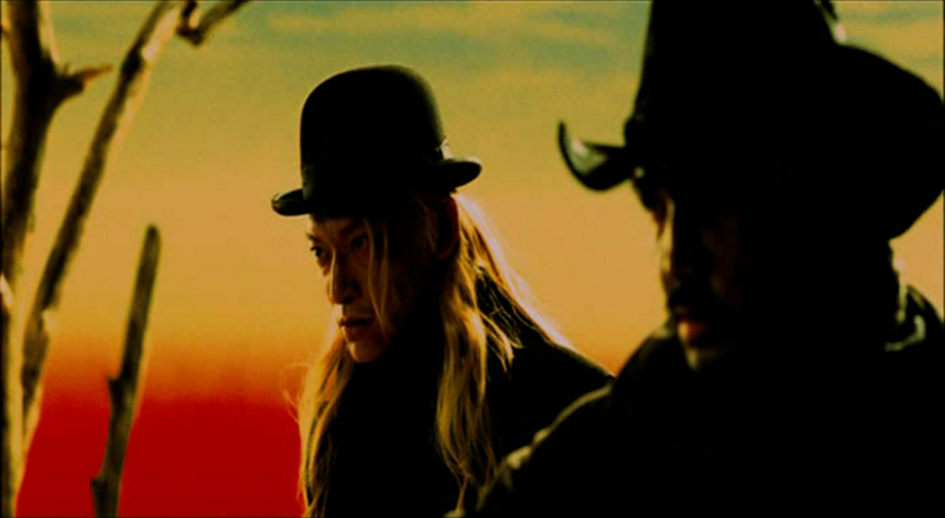My favorite film directors are the ones you can’t pin down. I like somebody who can jump from style to style and genre to genre. Steven Soderbergh comes to mind. He’ll direct the audience friendly Ocean’s Eleven but will follow it up with something weird and experimental like Bubble or The Girlfriend Experience.
Takashi Miike also fits this bill. I came to know Miike’s work through some of his more experimental and gore based work like Audition, Ichi the Killer, and the absolutely confounding, Visitor Q. What’s been interesting to watch is the scope of his films increase and to see him embrace and subvert more mainstream genres.
Sukiyaki Western Django is classic example of the Western genre. Sort of. The film title alone references Asian cuisine and the Italian spaghetti westerns, which were influenced by both the American Western as well as the Japanese samurai films. A mixed plate, indeed.
The film centers around a nameless gunman who is caught in the power struggle between two rival gangs, the whites and the reds, a few hundred years after the Genpai war. Our unnamed gunmen befriends a prostitute and her mute grandson, and sets out on a quest to get revenge on her behalf. It’s a familiar story told in an unfamiliar way.
One of the most interesting choices Miike makes with this film, is that it’s shot entirely in English with a Japanese cast, who don’t seem to have had a huge amount of experience with English. I recommend you watch the film with subtitles. There’s something so fantastic and wonderful about these Asian actors chewing up and delivering all this dialogue in a stilted Japanese/Western style. Why shouldn’t they? I’m reminded of the characters in Better Luk Tomorrow. Shouldn’t they have the same opportunity to be gunslingers and cowboys?
The small appearance by Quentin Tarantino in the film’s introduction, encapsulates the films cultural back-and-forth perfectly. Tarantino would go on to make his own Django film when he mashed up a Civil War slavery film with the style of a 70’s black exploitation flick. Is Sukiayaki Western Django a western? A Japanese samurai film? Does it even matter?
While still experimental, Takashi Miike definitely shows us a more mainstream side to his career. Moving forward, Miike takes on a much more traditional Japanese style.
